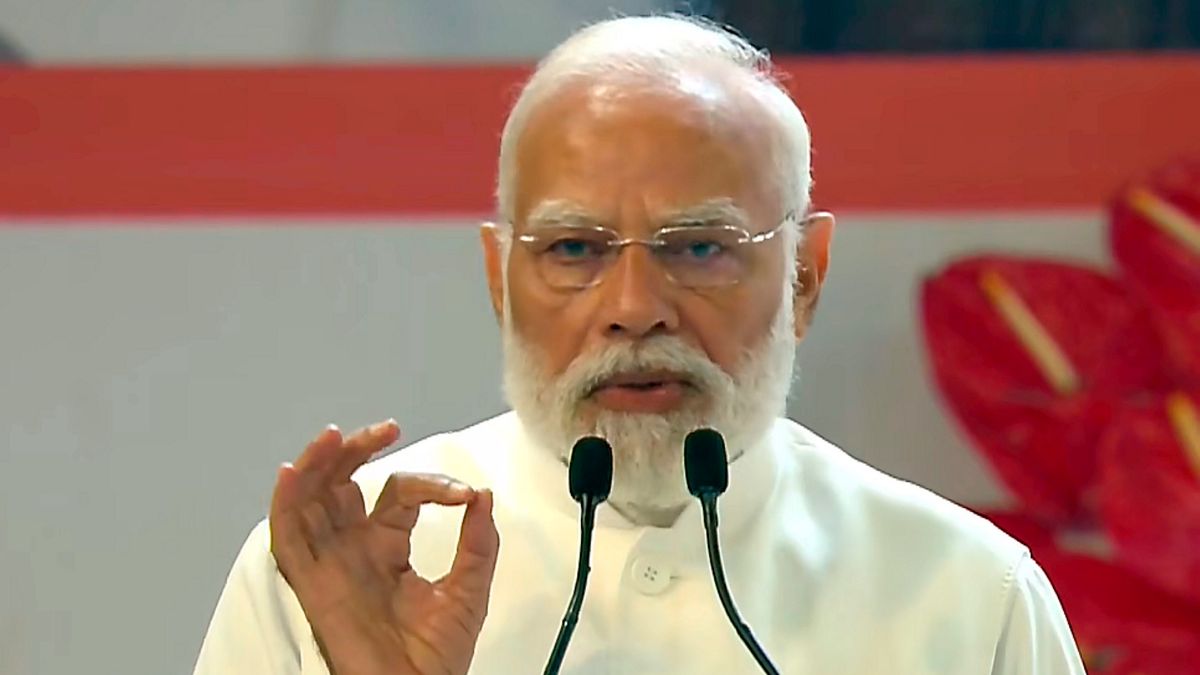'Vande Mataram' 150th anniversary controversy: What were the original stanzas and why were they cut?

As India celebrates the 150th anniversary of its National Song, 'Vande Mataram', on Friday, a controversy about certain parts cut from the original version has come to the fore.
It was originally written as a poem comprised of 6-7 stanzas by novelist and poet Bankim Chandra Chatterjee for his literary magazine 'Bangadarshan'.
BJP National Spokesperson C.R. Kesavan on Friday lashed out at the Congress for what the saffron party felt was Jawaharlal Nehru's decision to cut out certain sections of the original poem, as well as the latter's doubts on using it as a national song, citing letters Nehru wrote to Indian writer Ali Sardar Jafri and Subhas Chandra Bose.
These letters were published in an anthology titled 'The Selected Works of Jawaharlal Nehru', comprising letters, reports, essays, and more, published by the Jawaharlal Nehru Memorial Fund (JNMF).
Kesavan then connected the Nehru-led Congress' 1937 decision—to cut stanzas from Chatterjee's original poem before making it the National Song of India—to Rahul Gandhi's recent remarks: that Modi "staged a Chhath Puja drama", and his 2024 remark that the Congress was "fighting against a shakti".
In both letters, Nehru goes on to justify the 1937 decision, stating that though he found 'Vande Mataram' (then 'Bande Mataram') harmless and that "nobody can take exception to their meaning".
However, he also says that it had "too many difficult words" and that "people who are communalistically inclined have been affected by it".
"There is no doubt that the present outcry against Bande Mataram is to a large extent a manufactured one by the communalists. At the same time there does seem some substance in it and people who are communalistically inclined have been affected by it. Whatever we do cannot be to pander to communalists’ feelings but to meet real grievances where they exist," Nehru had written in the letter to Bose.
A 2017 Indian Express report also notes that the first two stanzas on the beauty of the motherland, which were the only ones that became the National Song, could have been written in 1872, while the other stanzas, with references to Goddess Durga, could have been added in later.
The report also highlighted Muhammad Ali Jinnah's statement that "Muslims all over have refused to accept Vande Mataram, or any or any expurgated edition of the anti-Muslim song as a binding national anthem", and Mahatma Gandhi's admission that the song which he had not considered as "a Hindu song" had the potential to cause communal rifts.
As a result, in 1951, 'Jana Gana Mana' became the National Anthem of India, making 'Vande Mataram' the National Song.
PM Narendra Modi also echoed Kesavan's sentiments during a Friday speech on the 150th anniversary of 'Vande Mataram'.
"Unfortunately, in 1937, important stanzas—a piece of Vande Mataram's soul—were removed from the original Vande Mataram song. Vande Mataram was broken into pieces. This also sowed the seeds of partition... Why was this injustice done? The same divisive ideology remains a challenge for the nation," he said.
PM Modi also sang the full version of the poem along with the hundreds of spectators gathered at the event.
India